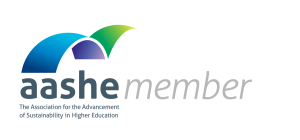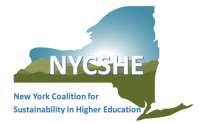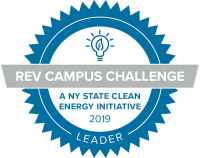Affiliate Organizations
As a means to getting further involved in sustainability as an institution, Purchase is affiliated with various organizations at local and national scales.

AASHE (Association for the Advance of Sustainability in Higher Education):
An association of colleges and universities that are working to create a sustainable future. Its mission is to empower higher education to lead the sustainability transformation. The organization provides resources, professional development opportunities, and a network of support to enable institutions of higher education to model and advance sustainability in everything they do, from governance and operations to education and research.

PLAN (Post-Landfill Action Network):
The Post-Landfill Action Network cultivates, educates, and inspires the student-led zero waste movement. PLAN has great resources for students interested in creating positive change on campus. As a PLAN member, any student can create an account to access their resources.

NYCSHE (New York Coalition for Sustainability in Higher Education):
Representatives of higher education within New York state unite and support organizations with a common interest to promote and support environmental, fiscal, and social responsibility. Made up of individuals with vested interests in sustainability in higher education, this coalition seeks to support not only the idea of sustainability, but each other and the initiatives on member campuses. This network is meant to be a way for ideas and best practices to be shared.

REVCC (Reforming the Energy Vision Campus Challenge):
The REV Campus Challenge promotes clean energy efforts by recognizing and supporting NYS colleges and universities that implement clean energy projects and principles on campus, in the classroom, and in surrounding communities. For the purposes of the REV Campus Challenge, clean energy is inclusive of energy efficiency, energy conservation, and renewable energy efforts. Members include two- and four-year, public and private institutions from all regions of NYS representing New York’s leaders in institutional sustainability.
As an institution of higher education, we recognize the unique position we are in to further clean energy adoption in New York State through our actions on campus, by training tomorrow’s leaders, and by working with our local communities. By joining the REV Campus Challenge, Purchase is demonstrating its commitment to advancing clean energy initiatives on-campus, in the classroom, and in the surrounding community.